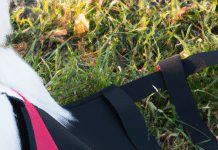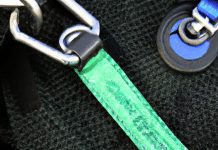Looking for the perfect harness for your furry friend with a sensitive skin condition? Look no further! In this article, we will guide you through the process of selecting a harness that not only provides comfort and support but also takes into consideration your dog’s delicate skin. We understand that finding the right harness can be overwhelming, but with our expert suggestions and helpful tips, you’ll be well-equipped to make the best choice for your beloved pet. So, let’s dive into the world of dog harnesses and discover the perfect fit for your pup’s sensitive skin!
Factors to Consider
When choosing a harness for a dog with a sensitive skin condition, there are several important factors to consider. These factors include the material of the harness, breathability, adjustability, padding, and the contact points of the harness on the dog’s body.
Types of Harnesses for Dogs with Sensitive Skin
There are various types of harnesses available for dogs with sensitive skin. These include vest harnesses, step-in harnesses, front-clip harnesses, and back-clip harnesses. Each type of harness has its own unique features and benefits, and it is important to choose the one that will provide the most comfort and support for your dog’s sensitive skin.
Choosing the Right Material
The material of the harness is one of the most important factors to consider when selecting a harness for a dog with sensitive skin. The material should be soft, non-irritating, and hypoallergenic. Some common materials used in harnesses include nylon, cotton, neoprene, and mesh. Nylon is durable and lightweight, while cotton is soft and breathable. Neoprene is a synthetic material known for its flexibility and water resistance. Mesh is a lightweight and breathable fabric that allows for good airflow.
Ensuring Breathability
Breathability is another crucial factor to consider when choosing a harness for a dog with sensitive skin. A harness that allows for good airflow will help prevent excessive sweating and discomfort. Look for harnesses with open designs or mesh panels that promote ventilation and prevent the buildup of heat and moisture. Additionally, consider harnesses made from moisture-wicking materials that will help keep your dog’s skin dry and comfortable, even during physical activity.
Importance of Adjustability
It is important to choose a harness that provides a good fit for your dog’s unique body shape and size. An adjustable harness allows for a customized and secure fit, ensuring optimal comfort for your dog. Look for harnesses with a wide size range and multiple adjustment points. This will allow you to find the perfect fit for your dog and make necessary adjustments as they grow or if their weight changes. Additionally, make sure the harness has a secure fastening mechanism, such as buckles or quick-release clips, to keep it securely in place during walks and other activities.
Ample Padding for Comfort
To provide maximum comfort for a dog with sensitive skin, it is important to choose a harness with ample padding. A padded chest plate helps distribute pressure evenly and reduces the risk of chafing or irritation. Look for harnesses with soft lining materials that are gentle on the skin. Avoid harnesses made from abrasive materials that can cause discomfort or skin irritation.
Consideration for Contact Points
The contact points of the harness on your dog’s body should be carefully considered to minimize any potential irritation or discomfort. Choose a harness with a flat design that distributes pressure evenly across the chest and back. Avoid harnesses with excessive friction points or hardware that could rub against your dog’s skin. Additionally, select a harness made from non-irritating materials that will not cause any allergic reactions or skin sensitivity.
Avoiding Allergens and Irritants
For dogs with sensitive skin, it is important to choose harnesses made from hypoallergenic materials. These materials are less likely to cause allergic reactions or skin irritations. Additionally, opting for chemical-free options will further minimize any potential irritants that could exacerbate your dog’s skin condition. Consider eco-friendly choices that are made from natural and organic materials, as these are often less likely to cause skin reactions.
Seeking Professional Advice
When it comes to choosing a harness for a dog with a sensitive skin condition, it can be helpful to seek professional advice. Consulting with a veterinarian who is familiar with your dog’s specific skin condition can provide valuable insights and recommendations. Additionally, a dog trainer experienced in working with dogs with sensitive skin can offer guidance on selecting a harness that will provide both comfort and support during training and walks.
Evaluating Customer Reviews
Before purchasing a harness for your dog with a sensitive skin condition, it is important to evaluate customer reviews. Look for reviews from other dog owners who have dogs with similar skin conditions. Their experiences can provide valuable insights into how the harness performs in terms of comfort and fit. Pay attention to feedback on any potential issues such as rubbing, chafing, or skin irritation. This will help you make an informed decision and choose a harness that will best meet the needs of your dog’s sensitive skin.
In conclusion, when choosing a harness for a dog with a sensitive skin condition, it is crucial to consider factors such as the material, breathability, adjustability, padding, and contact points. By selecting a harness that is made from soft and hypoallergenic materials, provides good airflow, offers a customized fit, and has ample padding, you can ensure optimal comfort and support for your dog. Additionally, seeking professional advice and evaluating customer reviews will further assist in selecting the right harness for your furry friend. Remember, when it comes to your dog’s sensitive skin, their comfort and well-being should always be the top priority.






























